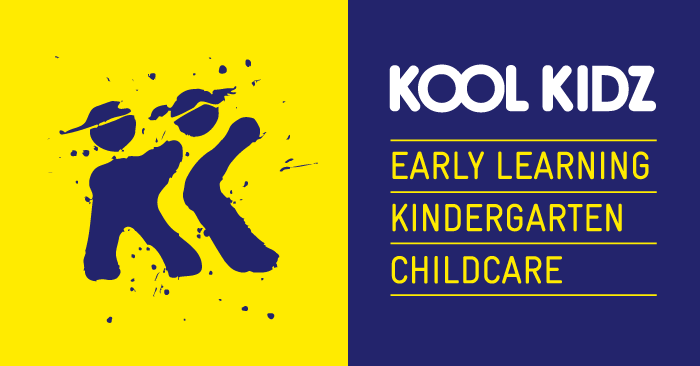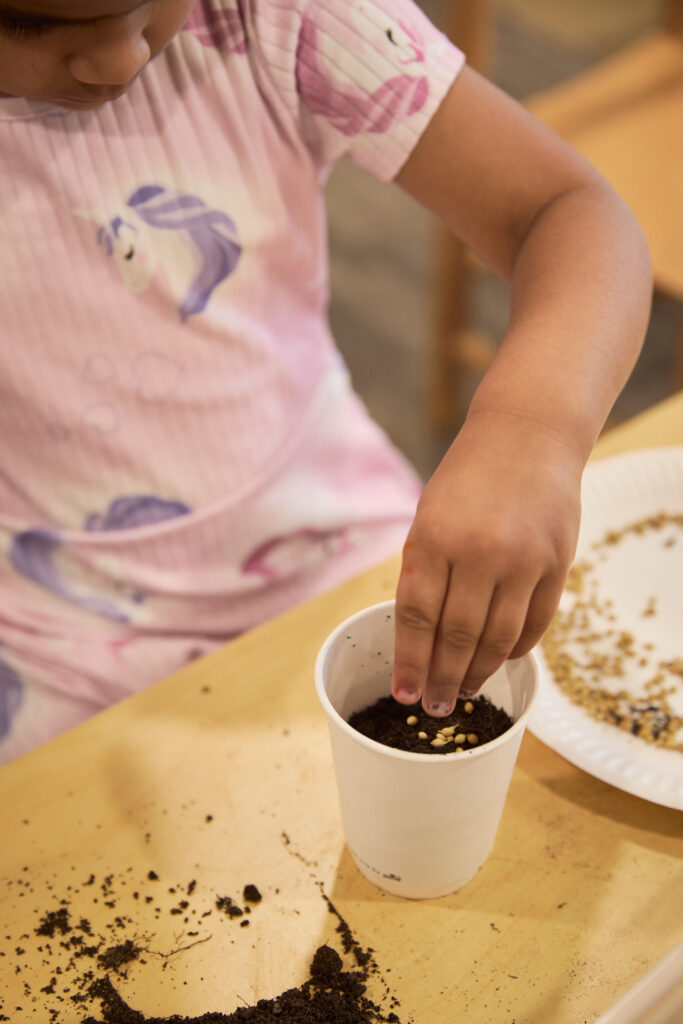Children are born with a sense of wonder and an affinity for nature. Properly cultivated, these values can mature into ecological literacy, and eventually into sustainable patterns of living.
– Zenobia Barlow
Defined as the ability to understand the natural systems that make life on earth possible, ecological literacy is now considered equally as important as reading and writing, in fact our survival and the survival of our planet relies on it.
“Unless someone like you cares a whole awful lot, nothing is going to get better. It’s not.”
– The Lorax
At Kool Kidz we aim to nurture strong connections to the natural environment and foster a sense of responsibility and care towards the natural world. Through our Kool Beginnings Curriculum (KBC), children are provided with nature-based learning experiences and opportunities to participate in eco-friendly activities.
Our KBC block “The World and the Environment” emphasises the significance of developing eco-literacy and a dedication to sustainable practices. We practice sustainability in education through eco-friendly activities such as gardening, recycling, power saving and water preservation, whilst also supporting children to develop an environmental awareness with regards to ecological principles and conservation. With Clean up Australia Day this month, we reflect on our organisational commitments and share valuable suggestions on how children can further enhance their ecological literacy both at home and within their communities.
“Building with purpose is not just about erecting structures; it’s about leaving a positive impact on our planet and future generations.”
Our commitment begins with the purposeful design of the buildings of our green childcare centres. Before children even step foot onsite, considerations are made in consultation with our architects and landscape contractors to ensure the building design incorporates sustainable practices, such as energy-efficient systems, recycling facilities, and nature-based elements, developing environmental awareness and responsibility in both our teaching team and children.
- Our architects place emphasis on the inclusion of natural light, from the placement of the building itself, to the location of each and every window, which aren’t always fixed to also allow for natural ventilation and airflow, saving energy by reducing the need for artificial light and filtered air.
- With a higher focus on native landscapes and playgrounds, rather than ‘plastic-fantastic’ equipment, our purposefully designed outdoor learning environments support children to build connections through their interactions with nature, while encouraging them to enjoy all weather types and a variety of natural elements such as grass, sand, rocks, bark, wood and water.
“Education is not the filling of a pail, but the lighting of a fire.”
– W.B. Yeats
The National Quality Standards are a set of benchmarks that guide and assess the quality of education and care services in Australia. Through our continued commitment to aligning practices with the National Quality Standards (NQS) we nurture environmental awareness for preschoolers by:
- Fostering an appreciation of nature
- respect for the natural environment
- an understanding of the relationship between people, plants, animals and the land
an understanding of Aboriginal sense of place and connection to Country
“Tell me and I forget, teach me and I may remember, involve me and I learn.”
– Benjamin Franklin
By learning from and about the environment through hands-on investigations such as sensory play, nature walks, gardening, recycling projects, and community effort events just like the upcoming ‘Clean Up Australia Day’, children begin to understand the importance of environmental conservation whilst also experiencing first-hand the impact of collective action, instilling in them a lifelong commitment to sustainable practices
Some of the hands on Eco-friendly activities for children offered across our Kool Kidz services include
- Edible gardens where children engage with seeds and soil participating in the growing process from garden, to kitchen, to table. This process includes composting and worm farming
- Sensory and art experiences using natural materials
- Caring for centre pets
- Leadership delegation of roles that support water and power conservation
- Recycling activities including using recycled materials for arts and crafts
- Propagating plants
- Biodiversity lessons, such as exploring insects and animals in their habitats.
- Cooking experiences
- Catching and releasing insects
- Nature-based learning excursions in outdoor learning environments such as the local park
“You cannot get through a single day without having an impact on the world around you. What you do makes a difference, and you have to decide what kind of difference you want to make.”
– Jane Goodall
Central to our approach at Kool Kids is the recognition of the role of eco-conscious parenting in guiding children towards environmental awareness. By:
- helping children (in age appropriate ways) to comprehend ecosystems, growth cycles, the implications of their actions on the environment,
- modelling responsible and environmentally friendly behaviours,
We as parents and teachers can inspire children to become active participants in environmental conservation efforts. This guidance empowers children to become advocates for positive change within their homes, schools and communities.
This could look like
- Establishing a home recycling system and involving children in sorting recyclables. Teaching children about the importance of reducing waste by practicing habits such as recycling, composting, minimising single-use plastics and using renewable resources.
- Encourage outdoor activities that involve observing and appreciating nature. Whether it’s bird watching, identifying different types of plants, or simply taking nature walks, parents can help children develop a connection with the natural world.
- Buying and donating pre-loved toys and clothes together. Globally, 26.8 million toys and 64% (92 million tonnes) of all preloved children’s clothes end up in landfill every year. By donating rather than throwing, we can significantly reduce this number.
- Promote creativity and eco-consciousness through upcycling and DIY projects, working together to repurpose items that might otherwise be discarded. This not only reduces waste but also teaches the value of reusing materials creatively.
- Reading stories with eco-literacy themes with children. Through fun and engaging narratives, children not only expand their knowledge about environmental issues but also cultivate empathy for the planet and its inhabitants.
- “The Lorax” by Dr. Seuss
- “The Water Princess” by Susan Verde
- “Bee & Me” by Alison Jay
- “The Watcher” by Nikki Grimes
- “The Tiny Seed” by Eric Carle
- “Change starts with us” by Sophie Beer
- “Compost Stew: An A to Z Recipe for the Earth” by Mary McKenna Siddals
- “What does it mean to be green” by Rana DiOri
- “Saving Seal, the plastic predicament” by Diane Jackson Hill
“The best way to predict the future is to create it.”
– Peter Drucker
Can you imagine the good we could do, if all of Australia came together on one day and took practical action to improve the environment? By promoting sustainable practices in early education and developing environmental stewardship for kids, we can make a big difference!


